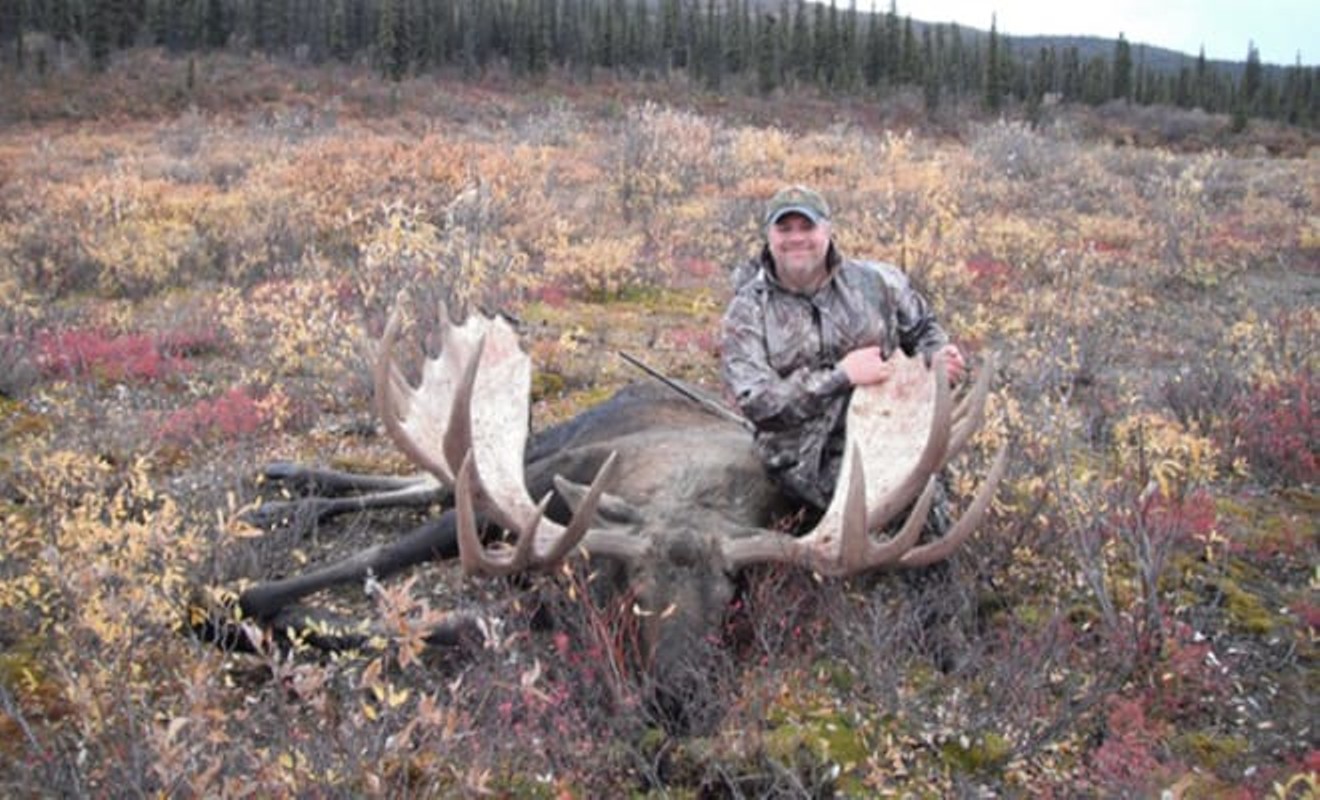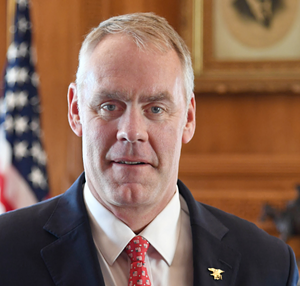The Western Values Project, a conservation group, is digging deep to track the potential conflicts of interest in Zinke's department while exploring their potential effects on fossil-fuel drilling in Colorado. And what it's finding is concerning, says WVP head Chris Saeger: a department headed by former lobbyists, industry advocates and corporate boardmembers that is prioritizing fossil-fuel development at the cost of conservation, the public and the outdoor industry.
The findings are presented on a website, which will be updated as more information comes to light. "The objective is to inform the public about the forces shaping the decisions made about public lands in Interior," says Saeger. "And the site shows that overwhelmingly, those forces come from corporate special interests that want to profit from public lands."
Points of interest on the site include Zinke's acceptance of over $335,000 in campaign finances from oil and gas firms or advocacy groups, including Halliburton; the role of chief public and environmental safety official Scott Angelle in a "massive" sinkhole possibly caused by salt mining while serving as head of Louisiana's natural resources department; and the potential conflicts of interest plaguing deputy Bernhardt, a native Coloradan from the oil and gas hub of Rifle who spent years lobbying in Washington, D.C., for the firm now known as Brownstein Hyatt Farber Schreck.
Bernhardt was confirmed to his post in July at a contentious nomination hearing, during which he came under fire from Democrats — and 150 environmental groups that opposed his nomination in an open letter — for his support of fossil fuels. The job entails managing the nine Interior offices and acting as special counsel to Secretary Zinke. As a lobbyist, Bernhardt's clients included Noble Energy, which was the second-highest producer of oil and natural gas on the Front Range in 2014 and 2015.
Of any person at Interior, Saeger is most concerned about Bernhardt. "He is going to be confronted with a lot of recusals on things that affect his former clients," he says.
"Deputy secretary is a really important position there. Somebody with that kind of background really should not be in that position, and the public should keep a close eye out."
According to Saeger, conflicts of interest may explain Interior's multi-pronged pivot toward fossil-fuel interests since Trump took office. In June, Zinke directed the Bureau of Land Management, which oversees about one in five acres in the West, to streamline its review of oil and gas drilling permits. The plan is intended to lower the barriers that oil and gas companies may face when drilling on public lands.
And on Friday, August 4, the Interior's Office of Natural Resource Revenue announced that it will lower the royalty rate for oil and gas leases of federal land, costing the department up to $75 million next year.
Leasing federal lands is already too easy in Colorado, says Saeger. "Oil and gas companies have plenty of opportunities to drill on public lands. The things that have prevented them from doing that has had little to do with the responsible guidelines that Interior has implemented," he continues, like low oil and gas prices stemming from industry overproduction.
Colorado is often front and center in the national debate about fossil-fuel development. The BLM leased more land in Colorado than any state except Wyoming between October 2015 and October 2016. The bureau manages about eight million acres of surface land in Colorado along with 27 million acres of "mineral rights," or land below the surface (often beneath private property). Conservationists and the outdoor industry are generally concerned that too much drilling on federal land would hurt the sports and outdoor economy, which is valued at over $28 billion in Colorado.
Kathleen Sgamma, head of the Western Energy Alliance, says that it is actually very difficult to lease on public lands, and called the Western Values Project's study "misleading." "Companies nominate [land to lease], and it can be years before anything actually comes up for sale," she says. "As far as that goes, having more certainty in the leasing and permitting process would actually make the entire system more efficient.
"The process of bidding on a piece of land can take extremely long," Sgamma adds, citing a BLM report that the average review process for a drilling application was over 250 days. And the environmental impact review, which is required by federal law, can take years. "If there is more certainty in the entire process — from leasing to environmental analysis, to permitting — then there would be more efficiency in the process," she says."The process of bidding on a piece of land can take extremely long."
tweet this
According to Saeger, though, the typical price of a "parcel" of federal land is too low: only $1.50, or "less than a Big Mac." Any federal land can be anonymously nominated for a lease, and the BLM is legally obligated to consider it.
It's too soon to tell if Zinke's order on drilling permits has actually resulted in more leasing of federal land in Colorado. However, 29 rigs are operating on the Front Range — two more than last year. Sgamma believes that Bernhardt is a great pick for the Interior position and will work with industry to "responsibly" develop resources.
"He has extensive experience in natural resource issues, both in the private and public sectors," Sgamma says. "So he's an excellent choice for deputy secretary."













